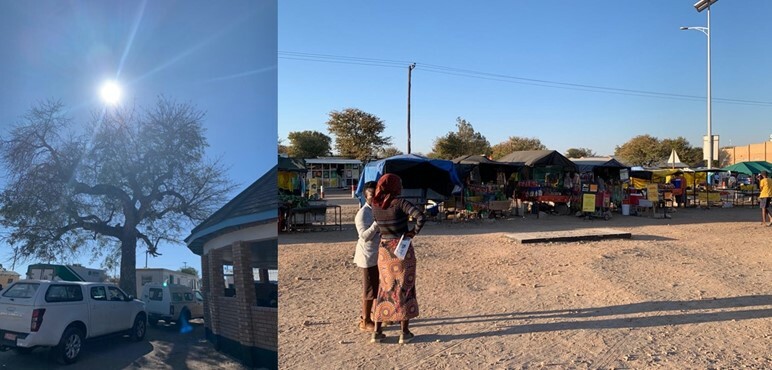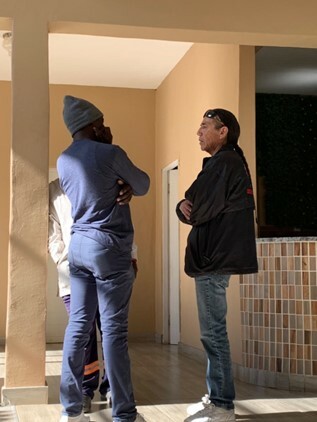Notes from the Field: Dr. Ian Tietjen in Africa, Part 4
Dr. Ian Tietjen is a Research Assistant Professor in Wistar’s Montaner Lab, where he investigates traditional African medicinal compounds’ potential for drug origination against viruses like HIV. Dr. Tietjen travels to Africa to work with traditional healers to better understand the function of these compounds.
If you haven’t started this series with part one, click here.
7 August 2023 — Today was the opening session of our biomedical research project—a major undertaking to better identify and understand natural medicinal compounds. We’re meeting with the community before starting work to inform them about our collaboration with the healers and answer questions.
We began by meeting in the kgotla, which is the traditional meeting house of the village. Because Tutume is the local capital of the district, several Kgosi and Dikgosi, or chiefs and sub-chiefs, from Tutume and the neighboring villages all come to meet. These days everyone wears suits, but at minimum jackets, long skirts and covered shoulders are required in the kgotla. This is a formal session where the community can meet and give formal approval to our proposed plan. Anybody can attend, and in this case, it was broadcast on Botswana TV (BTV) and streamed on Facebook.
We each took a turn speaking about where we come from, what we hope to achieve, and what we hope to avoid. We also had a local poet present one of his works, and a local dancing troupe performed to traditional music. In return, the Secwepemc delegation sang and presented the Tutume Kgosi and a delegate of the Ministry of Education a copy of their book Secwepemc People, Land, and Laws (written by Ignace and Ignace), a 10,000-year history of their peoples. The Secwepemc and local healers are already starting to hit it off and trying to learn from each other how traditional medicines work.
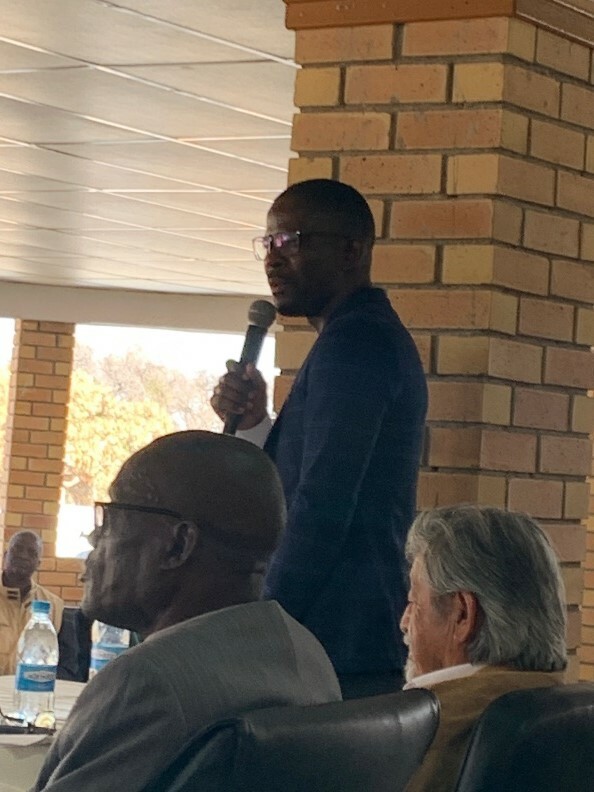
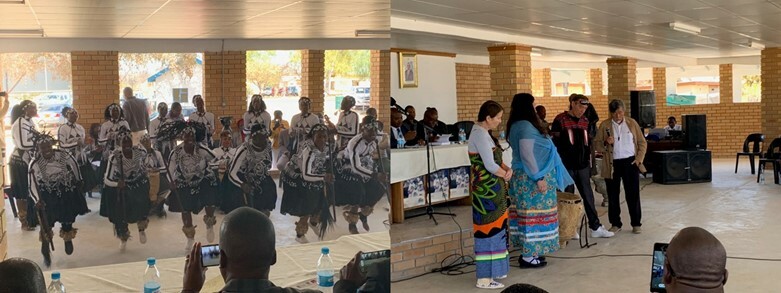
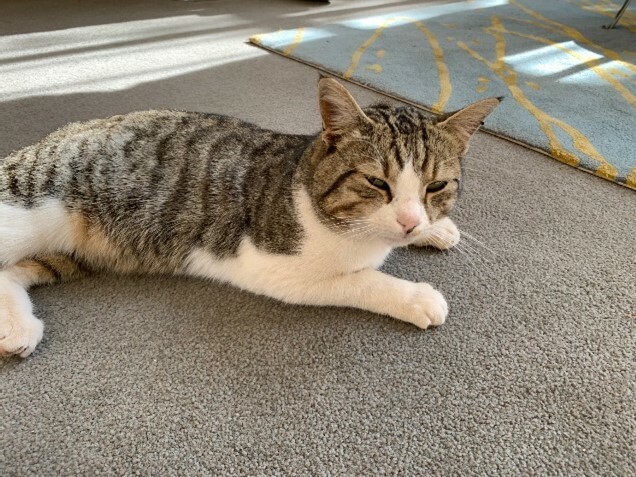
8 August 2023 — Today was the big experimental day, and we all assembled into experimental groups to conduct collaborative research for the workshop. We brought a large amount of lab equipment and reagents as well as plant samples that were blinded to us (meaning we didn’t know what the samples were). In the morning, we ran an antioxidant assay, an assay to measure inhibition of alpha-glucosidase, and an assay to measure anti-trypsin activity. The antioxidant assay reagents spoiled, so we ran an alpha-glucosidase assay with both pure enzyme and pea sprouts, which have high levels of this enzyme.
Basically, alpha-glucosidase is an enzyme that catalyzes complex sugars and starches into simple sugars, which our body needs for energy. However, if there is too much sugar in the body, this can lead to diabetes. Alpha-glucosidase inhibitors from medicinal plants might be leads for future anti-diabetes therapies. We all worked together to run the assays on the blinded compounds.
Interestingly, we found that several medicinal plant extracts have alpha-glucosidase activity on their own, in the absence of pea shoots. Compared to the workshop group using the pure enzyme, we had the opposite results. So, one group found potential leads for anti-diabetes therapies, and we found leads for potentially treating low blood sugar.
The healers’ scientific judgment is sharp. We discussed how sample age and solvents could affect outcomes, and other healers commented on additional controls that could be added. One mentioned that just because this assay didn’t show activity for a certain plant doesn’t mean the plant is invalid — only that it didn’t work in this experiment. There was a lot of discussion among all us over lunch about other ways to target diabetes beyond alpha-glucosidase.
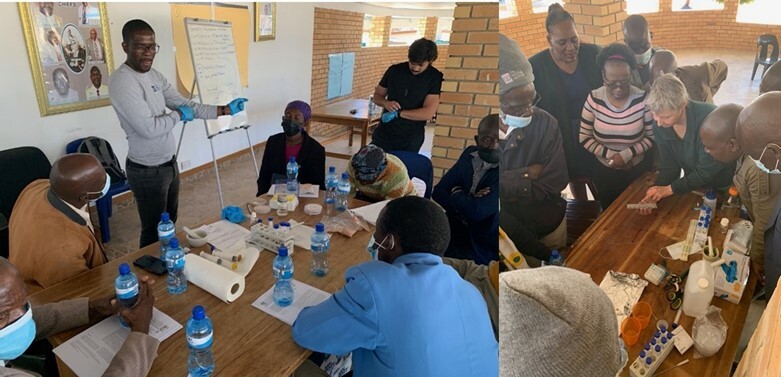
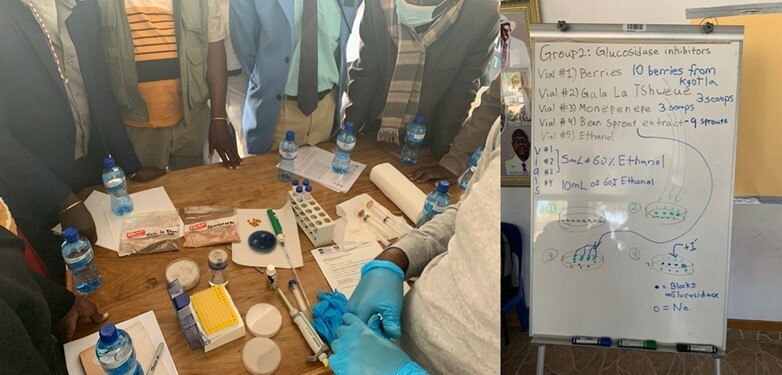
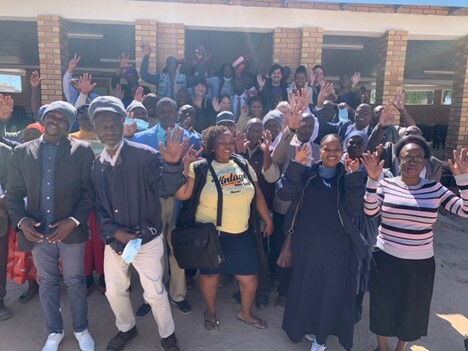
After we conducted experiments, three participants gave result summaries and interpreted them. And their interpretations and results criticisms were spot-on. We then had a long discussion about the next steps of what we could do together. The healers were enthusiastic about future directions after the workshop, and they hope to continue collaborating with us to investigate other samples; there’s more work to be done, and everyone is excited to work together on it.
More scenes from Tutume:
